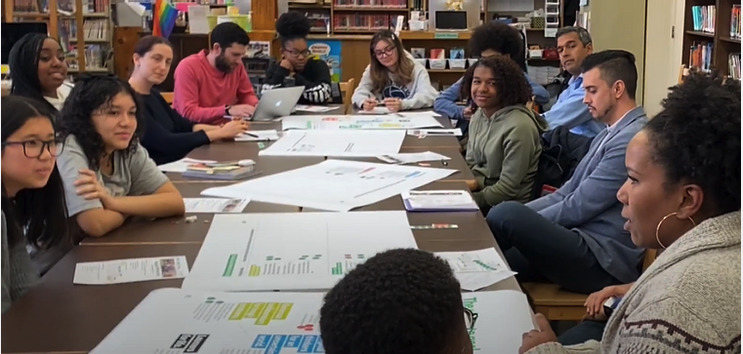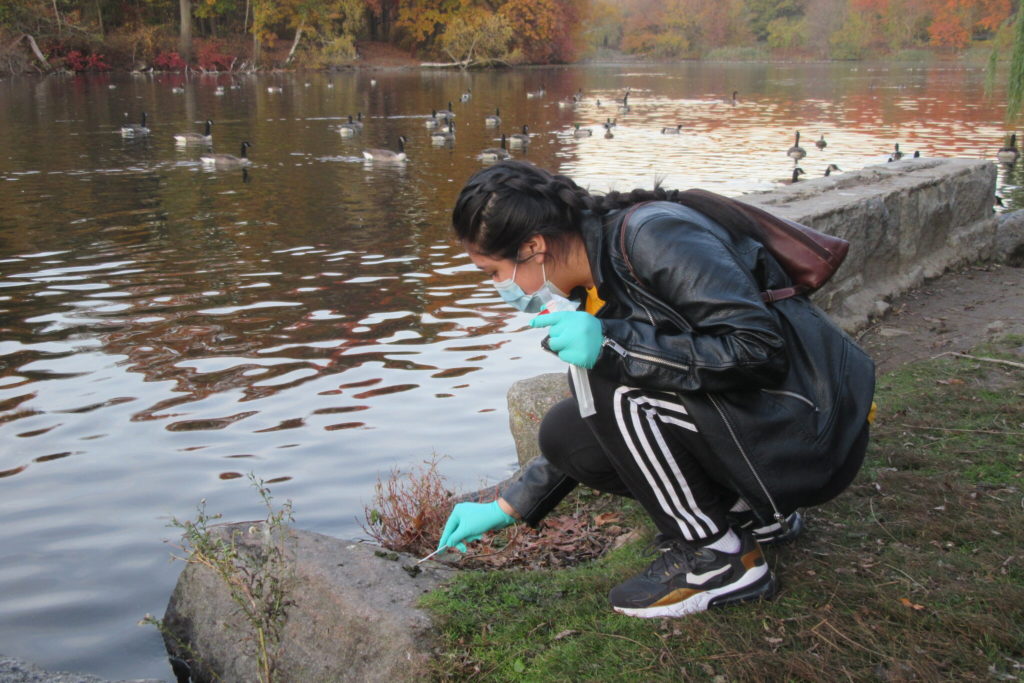by Lavon Sykes, January 2021 in The East Sider

For most of the city, the past year has been lights out and doors shut. COVID-19 has been a great force in consuming nationwide morale, energy, and motivation. But, not for East Side’s team of BioBus students.
While many have been sitting on their couches watching Netflix all day, and resigning to the monotony of quarantine, a group of scholars have taken initiative to preserve and express their passions for science. Through BioBus, a program dedicated to imbuing the love of science in low-income minority students, East Side students have been able to reimagine STEM at our school.
East Side is fortunate enough to have won a $20,000 grant due to the work of these students in the Reimagine Schools contest, sponsored by philanthropic organization XQ and the DOE. The $20,000 will help “mentor 10 juniors who are going to do their PBATs in the Spring” by supplying them with high-tech microscopes ready to kickstart their “hands-on experience,” says Assistant Principal and STEM Coordinator Joseph Vincente.
The story’s ending, although grand, doesn’t fully underscore the hard work and dedication each student, Joe, and BioBus put into achieving their goals. Every week before the shutdown, the group met at the library to discuss redesigning the East Side STEM programs and building the East Village biology base in the vacated space outside the auditorium on the 11th street side of the school.
A student on the team, Recy Jordan, said, “Through BioBus and getting the grant it would help spread that [STEM] to others. I feel great that I was able to help support STEM at East Side.” With nothing but high hopes and the means to bring them to fruition, the team was disappointed and briefly set back by the city-wide shutdown. Joe stated, “Then the pandemic happened and it came to a halt.” Discussion of the competition, biology base ideas, and the in-person meetings were put on pause.
Their dedication paid off as the team continued to attend Zoom meetings, and the city contacted Joe to provide East Side with a “mini-grant.” This is the $20,000 grant that will allow research at East Side to continue with high-tech equipment. The full prize money, however, was unable to be offered due toCOVID, but there is a possibility that the competition will resume once normalcy is reached, and the possibility for the full prize fund would be on the table. Although nothing about $20,000 is mini, it still won’t be enough to fully fund the biology base project.
Joe hopes that the students, city, and donors will “have enough momentum to reenter the contest and win even more money.” For current students and alumni, the large space that gave a home to many missing kickballs, baseballs, hats, and papers may become a center for science and exploration at East Side.
We’re all rooting for our science team, and we hope that as the city can resume normalcy over the next few months, our passionate students can once again have fun with biology and science exploration in person. And hopefully, that comes with a side of the money needed to build the biology base.
